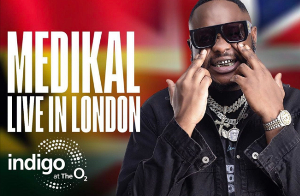- Home - News
- TWI News | TV
- Polls
- Year In Review
- News Archive
- Crime & Punishment
- Politics
- Regional
- Editorial
- Health
- Ghanaians Abroad
- Tabloid
- Africa
- Religion
- Election 2020
- Coronavirus
- News Videos | TV
- Photo Archives
- News Headlines
- Press Release
General News of Thursday, 16 August 2012
Source: --
Media Urged to Wake Up and Scale Up Role
…in Fighting Corruption
Story: Innocent Samuel Appiah
Prof. Kwame Karikari, Executive Director of the Media Foundation for West Africa, has called on the media to wake up and scale up their role in the on-going effort to redeem the country of corruption by writing boldly and frequently on the issue.
He noted that as the efforts to root out corruption takes shape in the country, the media that must be non-partisan in the work they do in exposing corruption should shape up and escalate it given its reach and power.
Prof. Karaikari made the call at the launch of network of Journalists Against Corruption at the Ghana International Press Centre in Accra on Wednesday, which is under the auspices of the Ghana Anti- Corruption Coalition (GACC) a civil society organization with the sole aim of building a national effort to confront the problem of corruption and devise effective control measures.
The 14 network, made up of 10 males and four females are expected to be mentored to improve their journalistic writings on transparency and accountability issues for collective action against corruption and enhance the watch dog role of the media.
Prof. Karikari told the members that even though they have the right to vote for a particular political party, they need to be independent of mind from political party sympathy, saying that their first obligation is to ensure the sanity the people in the country are experiencing is maintained, opining that they can make this work only when they have high ethical standards.
“If you work for a particular political party in power and you don’t want that party to lose elections, it is your duty to expose corruption within the circles so that measures can be taken to address the issues of corruption in the system. You would only be doing a disservice to that party if you gloss over it and watch the practice go on,” he noted.
The Executive Director called on journalists to stop providing a very narrow vista to Ghanaians and go beyond scheduled programmes such as press conferences, press releases, workshops, among others that only seek to be regulated by organizers of such events, and rather engage in issue-based reportage, going outside the box and dealing with critical issues affecting the development of the country.
Prof. Karikari, who admonished the group to be a pressure group that would force institutions to give information to the public noted that the objective of reporting on corruption is to ensure probity, accountability and transparency and stressed the need for journalists to be fair themselves and guard against all temptations to achieve their aim.
He charged the network members to report much on the corrupt behavior of public officials, putting corruption on the public agenda, covering corruption from diverse and wider ranging perspectives, providing publicity that generates broad public support for anti-corruption initiatives.
Giving an overview on the project, Beauty Emefa Narteh, Communications Officer of GACC said her outfit recognizes the influence of the media in shaping the public opinion of Ghanaians through its informative and educative mandates.
She said as a result of that, the GACC commissioned the media monitoring project in 2009 to determine the performance of the Ghanaian media in covering issues of transparency, accountability and corruption. The project monitors and analyzes corruption related stories from selected print and online sources.
Mrs. Narteh said findings from the media monitoring project identified a gap in investigative reporting, especially on corruption-related issues, saying that it was based on this that the British High Commission decided to partner the Coalition to establish a network of Ghanaian Journalists on anti-corruption investigative reportage.
She indicated that a capacity building workshop will be organized to equip network members with knowledge on electoral corruption, abuse of incumbency, public procurement, oil and gas accountability issues, and investigative reporting and writing tips, emphasizing that to facilitate knowledge sharing, experts on these areas will be assigned to mentor and support the journalists with relevant technical information, and added that the journalists are expected to produce at least two stories during the one-year of the project implementation.
“I wish to commend the network members for their passion and commitment to the fight against corruption. We recognize that investigative journalism to some extent could involve a lot of hazards since it deals with sensitive issues and exposes some prominent individuals who may go to great lengths to “kill” a story. Nevertheless, we recognize its positive impact on our development and its influence on the fight against corruption in Ghana. We therefore call on the collective support of all stakeholders to these committed journalists in their resolve to expose corruption in Ghana,” she maintained.
To be effective in its watch-dog role, the media is expected to monitor, investigate corrupt practices and inform the public. In doing so, the media will contribute to greater transparency and accountability in Ghana. Evidence suggests that there is limited media interest in investigative reportage on anti-corruption issues.










